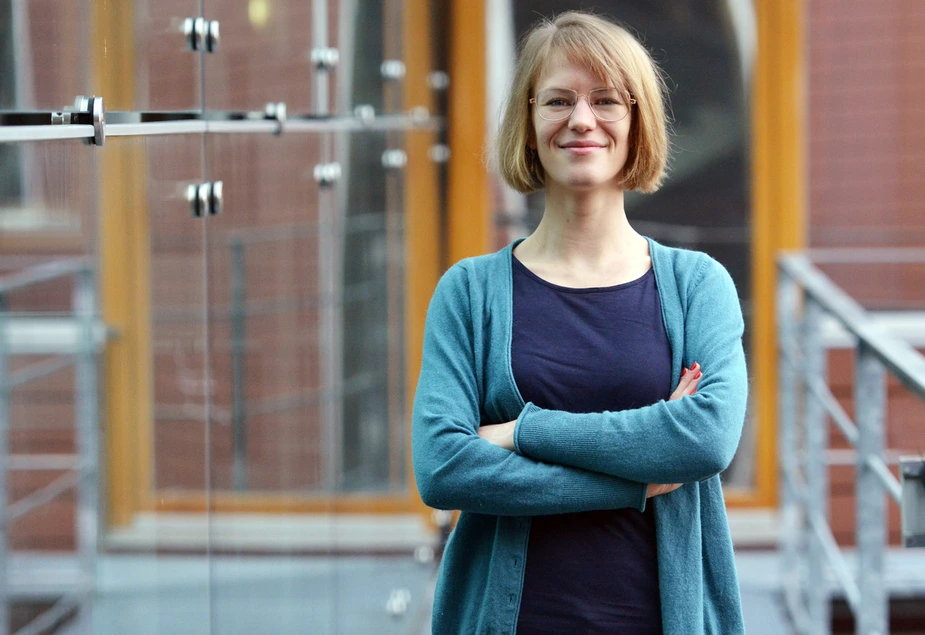Measuring Emotions
HU computer scientist develops sensors that help people with anxiety disorders
Sweating, heart racing, shaking: can emotions be identified from physical responses? Yes, says the PhD student Monika Domanska. She is using sensors to decipher physical responses at the Institute for Computer Science at the Humboldt-Universität zu Berlin (HU) in Adlershof. The results of her research might benefit psychotherapy.
Imagine the following scenario: a patient already had two panic attacks in the last few months, which occurred when she was under too much stress. She is a salesperson. It is mid-December, time for Christmas shopping. The woman has been working without a break for hours. Every minute she tends to new customers, scans countless items, and handles their money quickly and accurately in a friendly manner. The patient is under pressure, her pulse is increased, her hands are sweaty, and her head is spinning. Her body is signaling stress. She has learned in psychotherapy to watch out for these signals, to breathe and to not let anybody rush her. Now she is annoyed and forgetting all of this. What if a smart wristband could help her out? A tool which measures and understands her bodily signals and give her a signal to stay calm?
Indeed portable sensors could soon be part of the standard equipment of psychotherapists. Monika Domanska, a PhD student at the Institute for Computer Science at the Humboldt-Universität zu Berlin (HU), is providing the groundwork for this. She researches how emotions can be measured and identified by using sensors. “The symptoms of mental illnesses such as depression, schizophrenia or anxiety are expressed in, for example, fluctuations of heart rate, blood pressure, weight, conductivity of the skin, body activity and many other factors,” she explains. Checking and identifying one’s emotion is an important component of cognitive behavioural therapy. Portable sensors could help patients to learn this skill in their everyday lives.
Domanska’s studies consist of recording physical responses from a healthy group and followed by her patients. The test persons are equipped with sensors. These can include wristbands, but also sensors hidden in t-shirts, caps, glasses or belts. The main task of the computer scientist is to work through the enormous piles of data. “I have to look at and analyse each bodily signal individually, for example, moments in which the pulse was raised. Did the person run to catch a bus or was it a moment of anxiety?” explains Domanska. Parameters such as body temperature, which fluctuates all the time including in different seasons, had to be taken into account during data analysis.
Then Domanska has to look at signals from the heart, skin or movement in relationship to each other. “Every person has an individual pattern for each situation, which can be derived from the sensor measurements,” says the young scientist. A specific combination of pulse, sweat on the skin and a certain movement of an anxiety patient can hint that he or she is an emotional state, which has already led to a panic attack several times. In this case, the machine would send out a warning. The sensory wristband could light up, beep or vibrate – and the patient could start to counteract. “In the beginning, analysing a data set takes many hours and days. But at the end you have an algorithm, which is able to detect the patient’s data and assess the emotional state in a matter of seconds,” says Domanska. The development of a “mood trainer” is planned in the following years in cooperation with the Institute for Psychology in Adlershof. This digital and portable application will help the patient to better recognize emotions in everyday life and to better use the strategies against frustration, anger and anxiety, which psychotherapy has provided.
“My hope is that my research will improve medical care for people with mental illnesses,” says Domanska. The portable sensors should under no circumstances replace, but augment personal treatment.
By Jana Hauschild for Adlershof Journal
